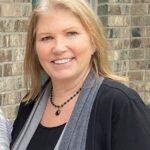Child Abuse is Preventable
Child abuse and neglect often occur when a parent is struggling to manage heightened levels of stress, often in conjunction with economic instability, chemical dependency, or a lack of social supports.
Why should we talk about child abuse? Often our society treats child abuse as a matter of “bad” parents. But parents can’t shoulder the blame for child abuse and neglect, because child maltreatment is part of a much larger ecosystem that fails to give parents the supports they need. Consider this – most parents in Minnesota do not have access to paid parental leave. This means that parents may be facing increased financial instability at the precise moment they begin the critical process of bonding with and nurturing their child.

Barb Sorum, Regional Director, Prevention Initiatives
Child abuse is something preventable through meaningful concrete (or formal) supports as well as natural (or informal) supports for parents and children. FamilyWise recently published a Family Wellbeing Index report about the state of family wellbeing in Minnesota using this framework. Through our NEAR Communities workshops, we raise awareness about the significant consequences of child adversity, and the many opportunities we have as individuals and whole communities to heal and prevent future trauma from occurring.
Parents can learn new skills so that they can do better for their children. Barb Sorum, one of our Regional Directors says, “We learn to parent the way we were parented whether we like it or not. That’s where we learn to be adults. If that’s what we come from, we don’t know better and we keep repeating those cycles until we learn better. Then we can do better.”

Katie Bierch, PSOP Manager
As part of our Parent Support Outreach Program (PSOP), Family Specialists work with parents to understand the importance of being proactive in their own lives to prevent crisis. That may mean being equipped to prevent a temper tantrum by noticing if a child is hungry or tired. Or , it may mean talking to your landlord or reaching out to emergency assistance rather than waiting until receiving an eviction notice.
“When we teach parenting we talk about being active vs. reactive or inactive. Instead of waiting… in your busy life take a second to work on something before it becomes a bigger issue.” As PSOP Manager Katie Bierch shares, participants in often feel relieved knowing they will have consistent and ongoing support weekly. The consistency of weekly support helps participating parents manage their stress.
“It is mirrored on different levels that we have the opportunity in front of us to prevent time, misery, money…. “ says Ann Gaasch, FamilyWise CEO. “The question we need to be asking is what investments do we need to make to keep families safe and healthy?”
To find out what you actions you can take to prevent child abuse and neglect, refer to the last page of our 2022 Family Wellbeing Index.
To learn more about Child Abuse Prevention Month, visit our CAP Month webpage.
